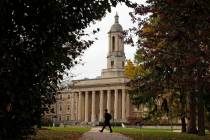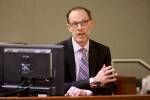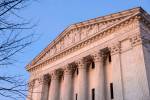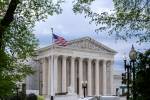On judicial recusals, bias, the ObamaCare endgame
U.S. Supreme Court Justices Clarence Thomas and Antonin Scalia are being accused of having a conflict of interest for, of all things, associating with known conservatives.
Thomas and Scalia have been criticized for speaking to like-minded conservative groups in general, and Thomas specifically for failing to report on his financial disclosure forms for five years the $680,000 the conservative Heritage Foundation paid his wife, Virginia.
According to a report by Politico's Kenneth Vogel, "Thomas and Scalia have been accused of undermining public confidence in the court by engaging in partisan politics and making decisions that could benefit the political and financial interests of family members and associates. And liberal groups have called on the Justice Department to investigate whether the two justices' alleged conflicts of interest should have disqualified them from voting in the 2010 decision on political spending, Citizens United vs. Federal Election Commission."
Common Cause has written a letter to the attorney general asking that Thomas and Scalia be retroactively recused from Citizens United v. Federal Elections Commission.
Citizens United was the case in which the court held, on a 5-4 vote, that much of the McCain-Feingold campaign finance reform law was an unconstitutional infringement on the First Amendment. Most galling to liberals was the part that took the gag off corporate and union spending on political candidates and issues.
It turns out, unbeknownst to those outside of the Washington, D.C., television viewing area, Citizens United ran $100,000 worth of television ads in 1991 in D.C. supporting the Senate's confirmation of one Clarence Thomas.
Ipso facto, Thomas should've recused himself from ruling in the Citizens United case because he had a conflict of interest, his critics contend. To support the presumption of bias, a group calling itself Protect Our Elections is citing the Caperton v. Massey Coal decision, in which the high court said a West Virginia judge should have recused himself in a case involving a coal company that had been supportive of his election. Whether the ruling even applies to the high court is another matter.
The court in Caperton duly noted that previously the court had held the Due Process Clause only requires recusal when a judge has "a direct, personal, substantial, pecuniary interest" in a case, but in Caperton they decided recusal is called for when "the probability of actual bias on the part of the judge or decisionmaker is too high to be constitutionally tolerable."
Thomas, Scalia, Chief Justice John Roberts and Justice Samuel Alito dissented. Roberts' dissent noted, "Unlike the established grounds for disqualification, a 'probability of bias' cannot be defined in any limited way. The Court's new 'rule' provides no guidance to judges and litigants about when recusal will be constitutionally required. This will inevitably lead to an increase in allegations that judges are biased, however groundless those charges may be."
The real agenda, though, may not be to reverse Citizens United but to get Thomas and/or Scalia off the court before it hears ObamaCare, which should be on a fast track to its pillared steps. This is especially so because liberal Justice Elena Kagan might recuse herself if she played a role in the Obama administration on the health care reform law.
U.S. District Judge Roger Vinson of Florida declared the law unconstitutional, saying it violated the Commerce Clause of the Constitution because it required citizens to purchase health insurance. The lawsuit was brought by 26 states. The Justice Department filed for an expedited appeal process with the federal circuit court in Atlanta. The case is expected to go quickly to the high court no matter what happens there.
Is it a conflict of interest to discuss issues of the day with those of a similar philosophy? It is a court, not a convent. Neither Thomas nor Scalia have a financial conflict in these matters. They will be neither richer nor poorer no matter how they rule. They merely have a system of core values with which liberals take umbrage.
Justice Thomas is being dragged out for another high-tech lynching. This time, various left-leaning groups are reading his mind and finding nefarious dregs of bias. Others might call that principle.
Speaking to a group of conservative law students in Virginia recently, Thomas advised the students to stand in defense of what's right and warned "there's gonna be a day when you're gonna look around and you're gonna look at your kids and your grandkids and they're gonna ask you a question: 'What happened to the great country that was here when you grew up, and why isn't it here now, and what did you do?'"
Thomas Mitchell is senior opinion editor of the Review-Journal. He may be contacted at (702) 383-0261 or via e-mail at tmitchell@ reviewjournal.com.























